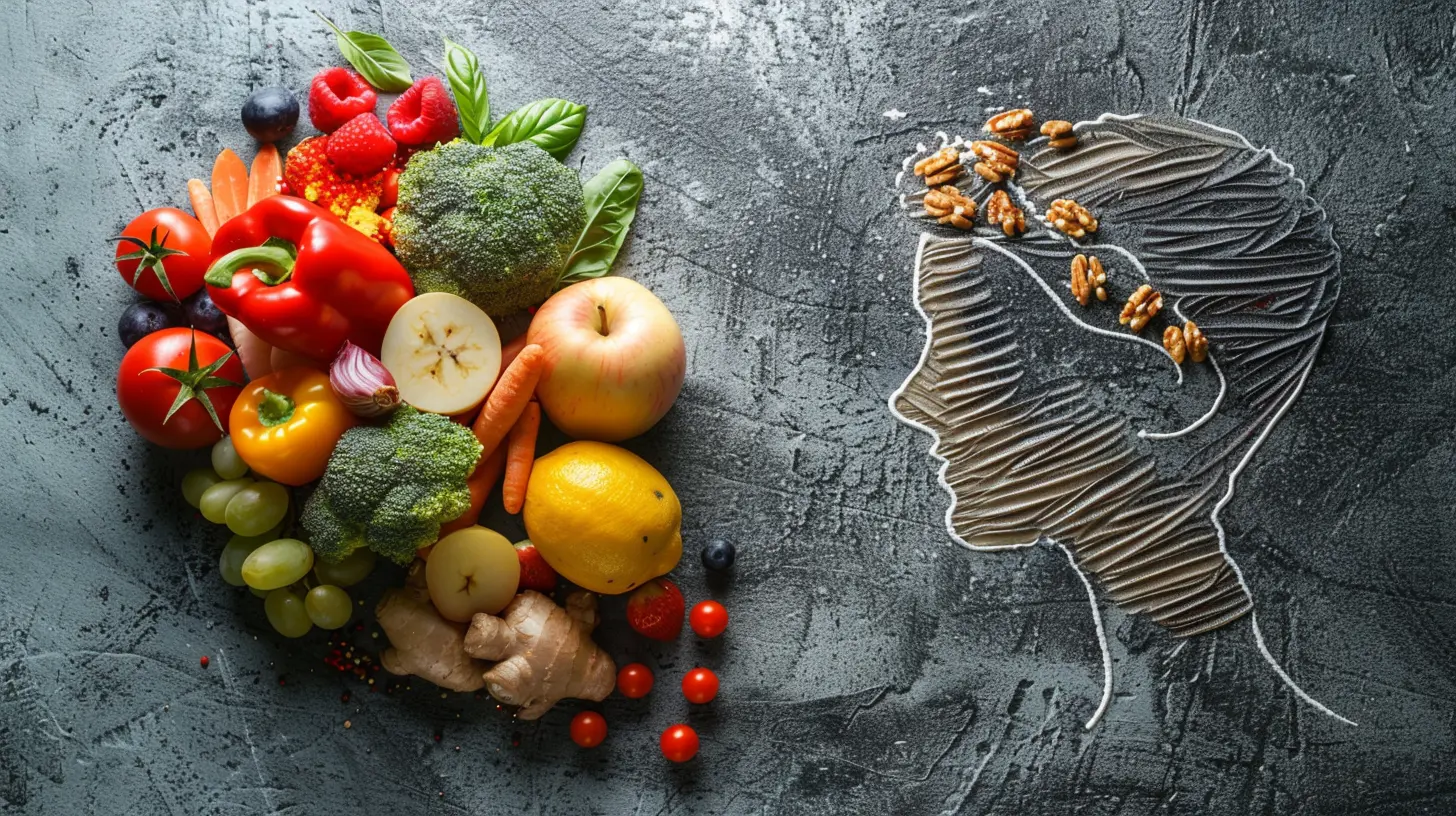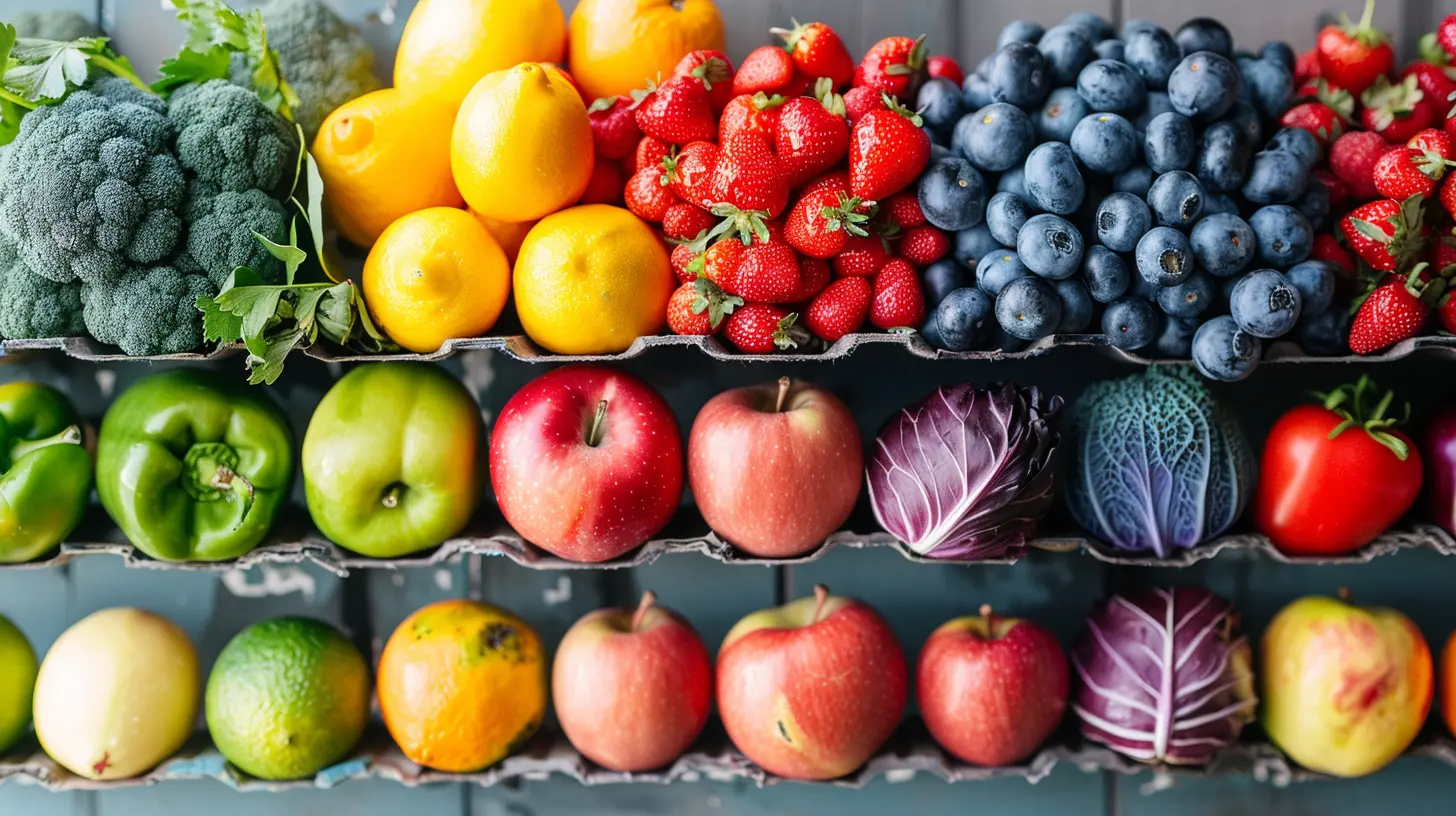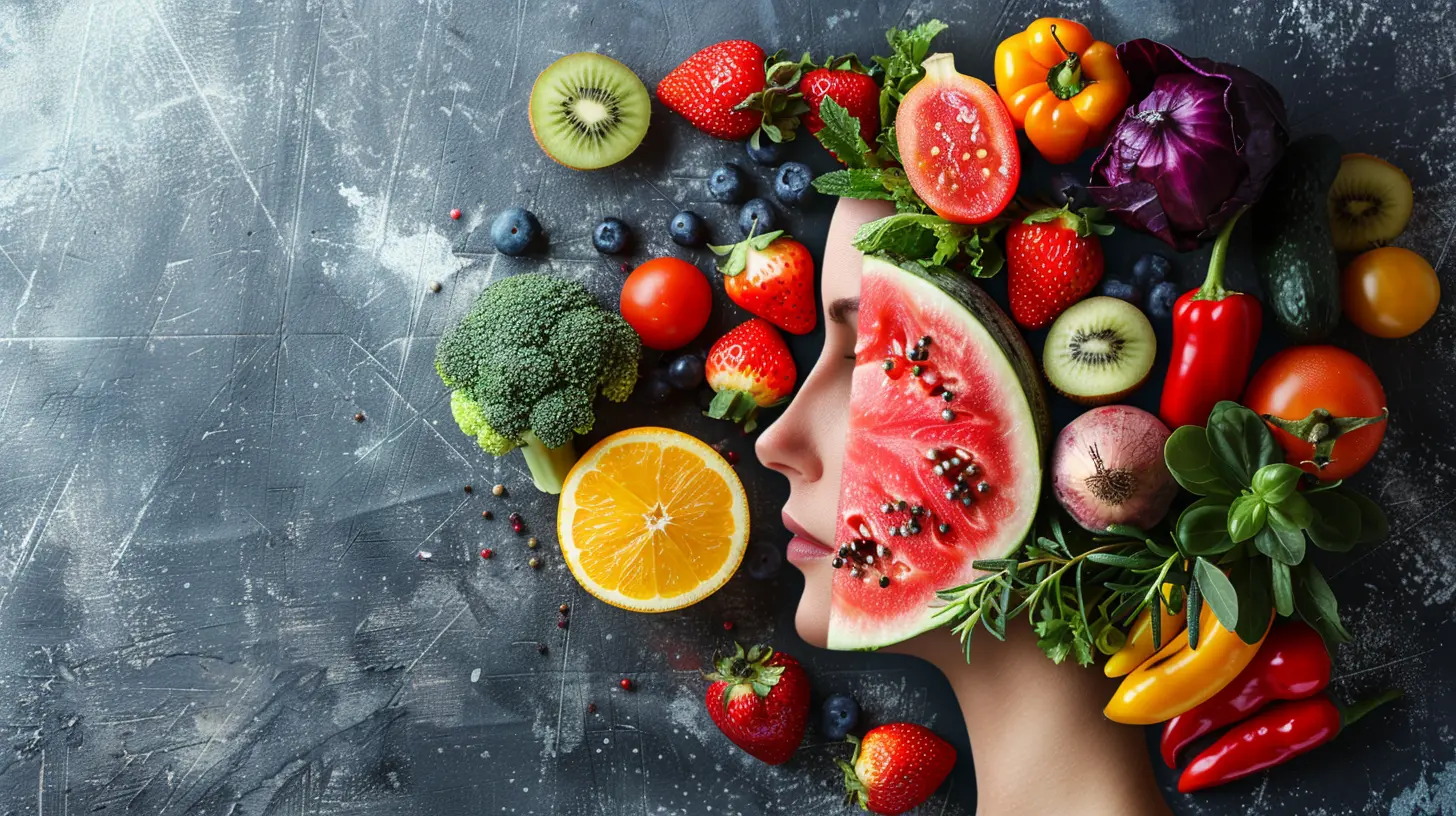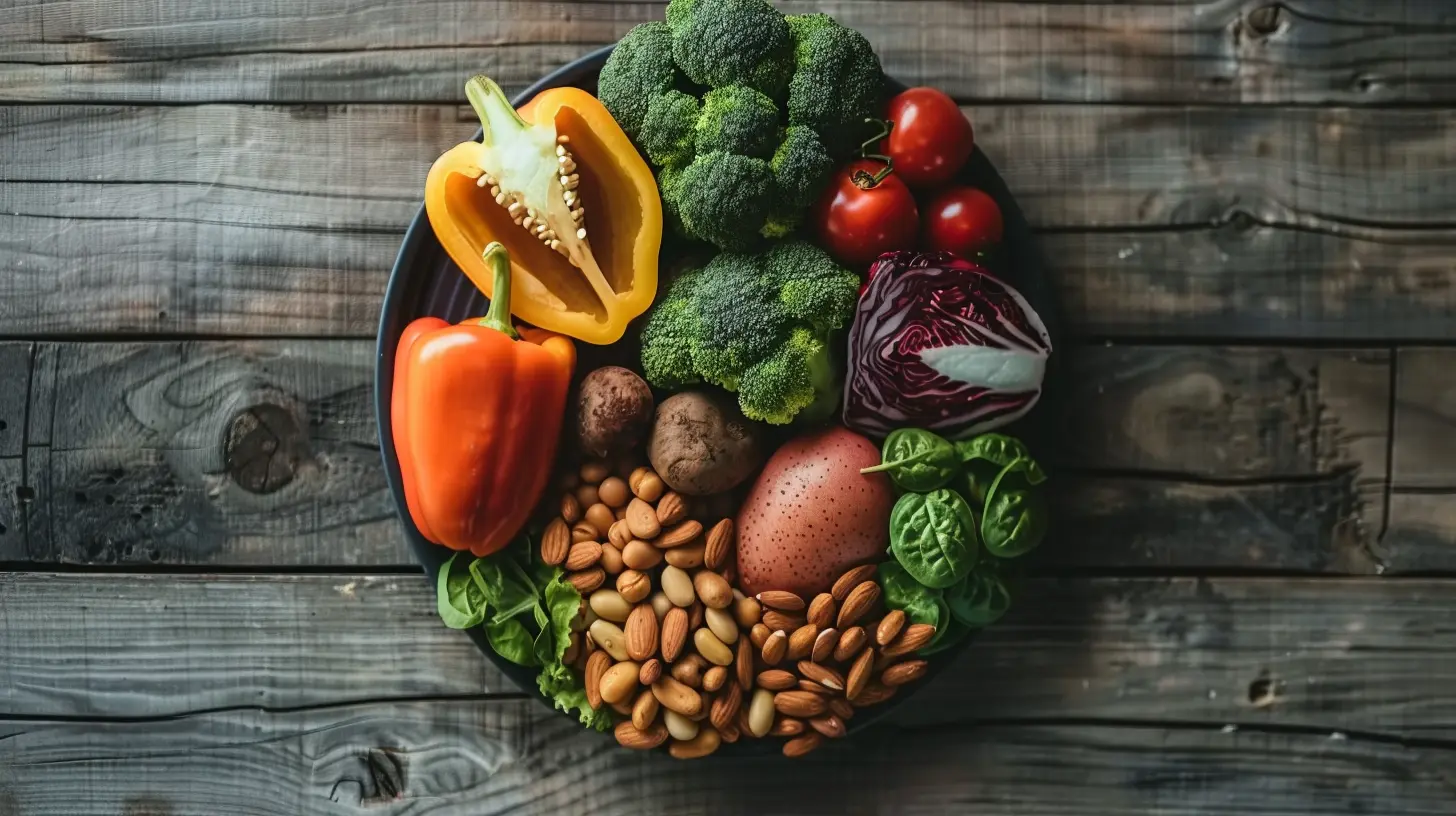The Connection Between Nutrition and Mental Clarity
20 September 2025
Have you ever felt foggy-headed after indulging in junk food? Or maybe you've noticed how a balanced meal leaves you feeling more focused and energized? That’s no coincidence! The link between nutrition and mental clarity is real, and what you eat directly impacts how well your brain functions.
We’re often told to eat well for physical health, but what about mental well-being? The truth is, your brain needs just as much attention as your body when it comes to nutrition. Let’s break down how what you put on your plate shapes your ability to focus, think clearly, and maintain emotional balance.
How Nutrition Affects Brain Function
Your brain is a powerhouse, constantly processing information, making decisions, and controlling emotions. But just like a car needs quality fuel to run smoothly, your brain requires the right nutrients to function at its best.Certain foods can boost cognitive function, while others leave you feeling sluggish and foggy. Think of your brain as a high-performance engine—it runs better when fed premium fuel rather than low-grade alternatives.
The Brain-Gut Connection
Before diving into specific nutrients, let’s talk about an often-overlooked player in mental clarity: your gut. Emerging research suggests a strong relationship between gut health and brain function. The gut microbiome, which consists of trillions of bacteria, influences neurotransmitter production, including serotonin and dopamine.Ever had a gut feeling about something? That’s because your gut is almost like a second brain, sending signals that affect mood, focus, and cognitive function. A diet rich in fiber, probiotics, and whole foods keeps the gut happy, which in turn supports mental clarity.
Key Nutrients for Mental Clarity
Now that we understand why nutrition matters, let's get into the specifics. Here are the top brain-boosting nutrients that can sharpen focus and enhance cognitive performance.1. Omega-3 Fatty Acids – Brain’s Best Friend
Omega-3s are like super fuel for the brain. Found in fatty fish like salmon, flaxseeds, and walnuts, these essential fatty acids play a vital role in brain cell communication. They help reduce inflammation, improve memory, and even lower the risk of mental decline.A diet low in omega-3s can lead to sluggish thinking and increased susceptibility to mood disorders like anxiety and depression. So if you want to keep your brain sharp, adding a serving of omega-3-rich foods a few times a week is a great idea.
2. Antioxidants – The Brain’s Shield
Your brain is constantly exposed to oxidative stress, which can damage cells and impact cognitive function. Enter antioxidants—the body’s natural defense system against this kind of damage.Berries, dark chocolate, green tea, and leafy greens are loaded with antioxidants like flavonoids and polyphenols, which protect the brain from aging and improve mental clarity. Think of them as a protective shield, keeping brain cells healthy and functioning optimally.
3. B Vitamins – The Brain’s Energy Boosters
B vitamins, especially B6, B12, and folate, are essential for brain health. They help produce neurotransmitters responsible for memory, focus, and mood regulation.Leafy greens, eggs, fish, and legumes are great sources of B vitamins. If you’re feeling mentally sluggish, a deficiency in these vitamins might be the culprit.
4. Complex Carbohydrates – Steady Fuel for the Mind
Carbs often get a bad rap, but not all of them are created equal. Your brain relies on glucose for energy, and getting a steady supply from complex carbohydrates (like whole grains, quinoa, and sweet potatoes) ensures consistent mental performance.Refined carbs, on the other hand, cause blood sugar spikes and crashes, leading to brain fog and fatigue. So, if you want sustainable mental energy, choose whole, fiber-rich carbs over sugary snacks.
5. Protein – The Building Block of Neurotransmitters
Protein isn’t just for building muscles—it’s essential for making neurotransmitters, the chemicals that help brain cells communicate. Amino acids found in protein-rich foods like lean meat, eggs, dairy, and legumes support dopamine and serotonin production, keeping you focused and emotionally balanced.Skipping protein in your diet can lead to sluggish thinking and mood swings. So, make sure you’re getting enough high-quality protein every day.
6. Hydration – The Forgotten Factor
It’s easy to overlook, but dehydration is a major culprit in mental fatigue. Your brain is about 75% water, and even mild dehydration can cause headaches, confusion, and loss of focus.Caffeine and sugary drinks can dehydrate you further, so opt for water, herbal teas, and natural electrolyte sources like coconut water to keep your brain hydrated and functioning at its best.
Foods That Hinder Mental Clarity
Just as some foods enhance brain function, others do the exact opposite. If you’re struggling with focus and mental fatigue, you might want to cut back on these:1. Processed Foods and Sugary Snacks
Highly processed foods loaded with artificial additives and sugar cause spikes and crashes in blood sugar levels, leading to brain fog and mood swings.2. Trans Fats and Unhealthy Oils
Fast food, fried snacks, and hydrogenated oils contribute to inflammation, which can impair cognitive function and even lead to long-term mental decline.3. Excessive Alcohol Consumption
Alcohol interferes with neurotransmitter activity and can lead to dehydration, impairing cognitive function and memory retention.4. Artificial Sweeteners
Some artificial sweeteners, like aspartame, have been linked to cognitive issues and mood disturbances. While they may seem like a good sugar alternative, they can do more harm than good.
Simple Dietary Changes for Better Mental Clarity
Now that you know which foods help and which hurt, here are some simple changes you can make for a clearer mind:- Start Your Day with Protein: A high-protein breakfast can improve focus and prevent mid-morning brain fog.
- Include Healthy Fats: Avocados, nuts, and olive oil support brain health and cognitive function.
- Eat the Rainbow: Colorful fruits and vegetables provide essential vitamins and antioxidants for mental clarity.
- Ditch Processed Foods: Choose whole, unprocessed foods whenever possible.
- Stay Hydrated: Drink plenty of water throughout the day to keep your brain functioning optimally.
Final Thoughts
Your brain is a high-performance machine, and the fuel you give it determines how well it performs. A diet rich in omega-3s, antioxidants, B vitamins, and hydration can dramatically improve focus, memory, and overall mental clarity. On the flip side, processed foods, sugars, and trans fats can slow you down and contribute to brain fog.So, the next time you’re about to grab a snack, think about how it will impact your brain. Your mental clarity is in your hands—make food choices that nourish not just your body, but also your mind!
all images in this post were generated using AI tools
Category:
Mental ClarityAuthor:

Ember Forbes
Discussion
rate this article
1 comments
Juliana Clarke
Reading about the link between nutrition and mental clarity is like realizing that the brain does need more than just coffee and sheer willpower! Who knew my snack choices could impact my thoughts? Pass the kale and let’s clear the mental fog—preferably with a side of chocolate!
October 11, 2025 at 2:31 AM

Ember Forbes
Absolutely! Nutrition plays a crucial role in brain health—your snacks can truly fuel your mind. Enjoy that kale and chocolate combo!


